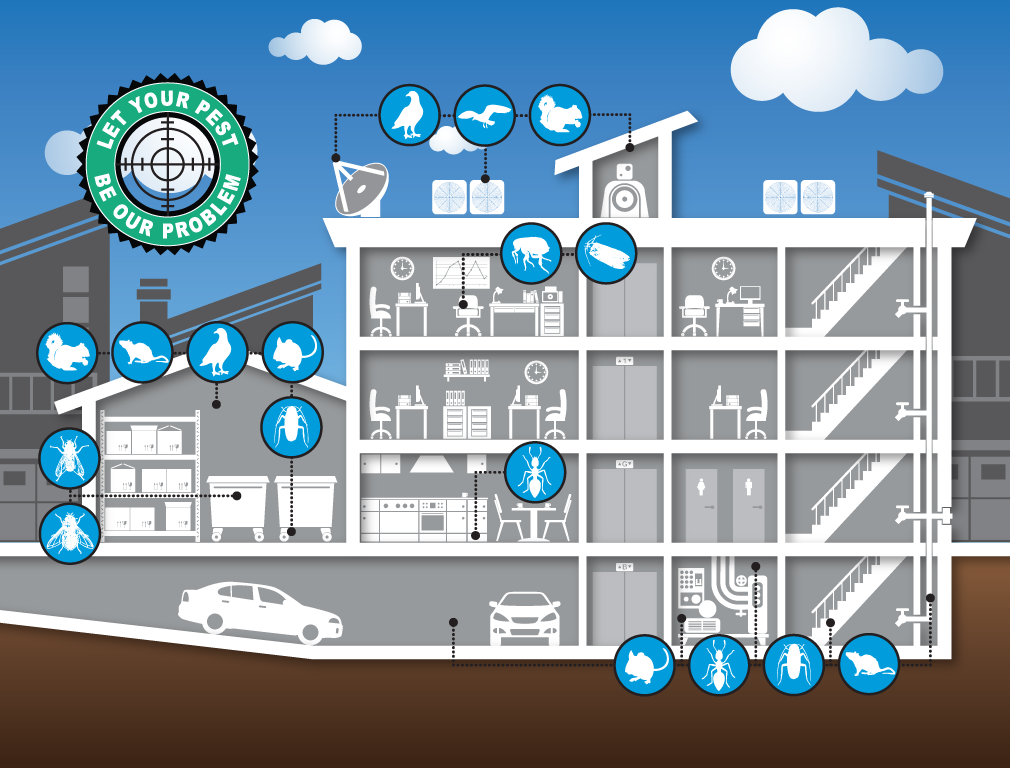The Pros And Cons Of Chemical Bed Bug Therapies: What You Need To Know
The Pros And Cons Of Chemical Bed Bug Therapies: What You Need To Know
Blog Article
Web Content Author-Dillon Lowery
Did you know that bed pests are among one of the most tough parasites to get rid of? If you're thinking about chemical treatments to get rid of these pesky creatures, it is necessary to weigh the advantages and disadvantages.
In Eco-friendly rodent control , we'll explore the performance of chemical bed insect treatments, the potential health threats connected with them, and their influence on the setting.
By understanding these variables, you'll be better furnished to make an informed decision concerning tackling your bed bug problem.
Efficiency of Chemical Bed Bug Therapies
You will be pleased to understand that chemical bed bug therapies are usually quite effective in eliminating invasions. These therapies work by targeting the bed pests' nervous system and disrupting their ability to feed and recreate. By using chemicals specifically made to kill bed bugs, you can efficiently eliminate them from your home.
One of the advantages of chemical therapies is their ability to get to even one of the most hard-to-reach locations, such as fractures and holes where bed pests like to hide. Additionally, chemical treatments can provide lasting outcomes, helping to prevent future infestations.
Nonetheless, it is necessary to adhere to the instructions meticulously and take necessary security preventative measures when utilizing these treatments.
Possible Wellness Risks of Chemical Bed Pest Therapies
There are numerous prospective wellness risks associated with chemical bed bug therapies that you should know. While these therapies can successfully remove bed pests, they might likewise pose threats to your health and wellness.
https://writeablog.net/kary4354marylynn/pest-control-expenses-obtained-you-down-learn-how-to-conserve-huge-in-the is the exposure to hazardous chemicals. The pesticides utilized in these therapies can be unsafe if breathed in or if they come into contact with your skin. Some people might experience allergic reactions or breathing troubles consequently.
Furthermore, chemical therapies might leave residue on surface areas, which can be ingested or taken in with the skin, leading to additional wellness problems.
It is essential to very carefully follow the instructions supplied by specialists and take essential preventative measures to lessen the possible health dangers connected with chemical bed insect treatments.
Environmental Impact of Chemical Bed Bug Treatments
One potential worry about chemical bed pest treatments is their impact on the setting. When thinking about the environmental influence of chemical bed bug treatments, here are four vital elements to remember:
1. Pesticide runoff: Chemical treatments can potentially infect water sources, causing harmful impacts on water life and ecological communities.
2. Air contamination: The launch of chemical fumes throughout treatment can contribute to air contamination, impacting not only the environment but also human health.
3. Damage to beneficial pests: Chemical treatments might not only target bed bugs but likewise damage useful insects such as bees and butterflies, which play important duties in pollination.
4. Long-lasting impacts: Using chemicals may have lasting repercussions on the environment, consisting of dirt contamination and disturbance of natural ecological communities.
Taking into consideration these variables, it's essential to weigh the possible risks and benefits of chemical bed pest therapies and discover different, extra environmentally friendly options.
Verdict
So, when it concerns chemical bed insect treatments, there are absolutely advantages and disadvantages to consider.
On one hand, they can be highly effective in eliminating these pesky parasites.
Nevertheless, there are possible health dangers to be familiar with, along with the ecological impact of using chemicals.
It is essential to consider these variables meticulously prior to deciding on a treatment method.
Yet, what happens if there was one more option? Something that could successfully remove bed insects without the drawbacks?
Keep tuned, due to the fact that there may just be an unusual option imminent.
